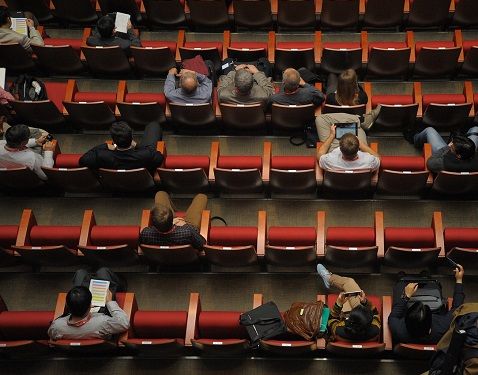
The must-see ECOC 2016 workshops for unlocking the capacity of optical communications
16 September, 2016
UNLOC researchers will make a major contribution to ECOC 2016 in Dusseldorf, 18-22 September. UNLOC members from UCL and Aston University will present a combination of workshops and papers on unlocking the capacity of optical communications.
Join UNLOC researchers to explore the effectiveness of nonlinear mitigation techniques in fully loaded, long-haul WDM transmission and hear about the state-of-the-art in receiver and transmitter based signal processing for spatially multiplexed systems.
WS06 - Extending reach in long-haul WDM systems: What can be achieved with nonlinear mitigation techniques in fully loaded WDM transmission?
The workshop is co-organised by UNLOC Investigator, Dr Robert Killey. This workshop discusses the effectiveness of nonlinear mitigation techniques in fully loaded WDM transmission and compares performance gain and technology complexity of the different solutions for digital and optical nonlinear mitigation in the context of long-haul dense WDM transmission systems.
Speakers at this workshop include UNLOC student, Gabriele Liga, UNLOC Investigator, Andrew Ellis and former UNLOC researcher Dr Carsten Behrens (now at Deutsche Telekom, an UNLOC industry partner).
WS01 - Progress and Challenges in MIMO (Multiple-Input Multiple-Output) Signal Processing and Channel Modelling for Space Division Multiplexed Transmission systems
This workshop is organised by UNLOC Investigator, Dr Benn Thomsen. To date the most impressive single fibre capacity results have utilised Space Division multiplexing either within multiple cores or within a single multimode core or combination thereof. The most impressive results in the 12 years since the Mode Division Multiplexing (MDM) flavour of Space Division Multiplexing (SDM) for coherent systems was first proposed and demonstrated by Hsu et al. have all used offline MIMO processing to demonstrate the potential capacity of such systems. This workshop explores the current challenge – to develop real-time signal processing technology to show that such systems can outperform conventional single mode fibre approaches. Achieving this would make MDM an attractive technology for use in real-world systems.
